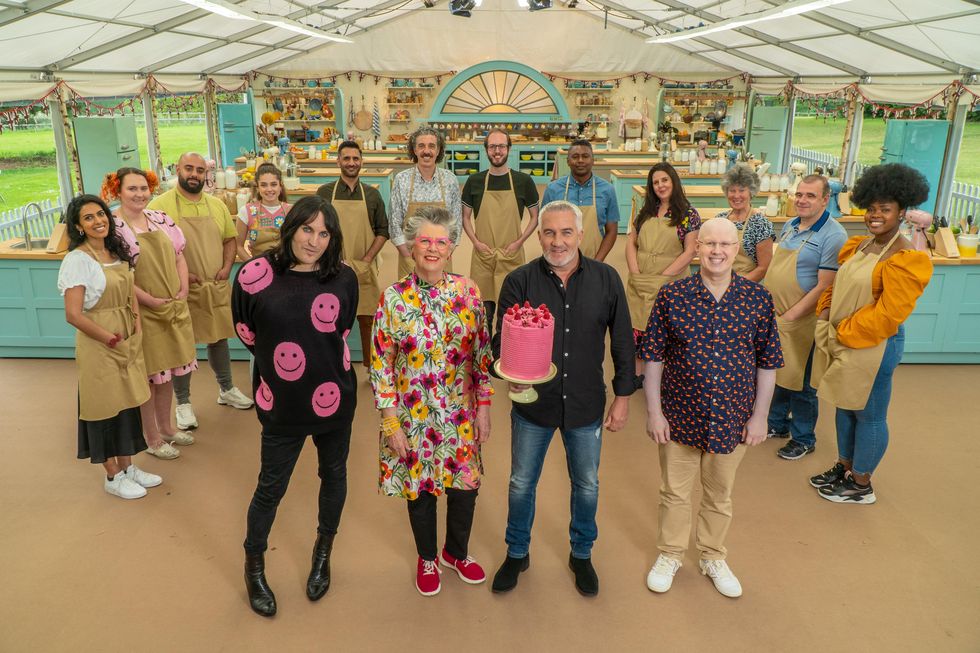Why has diet culture invaded the Bake Off tent?
One of the joys of autumn evenings is undoubtedly tuning into ‘The Great British Bake Off‘ once a week. But what is often one of TV’s most wholesome shows has taken a sour turn this season. How? Judge Prue Leith’s wholly unnecessary comments on the nutritional aspects of some of the bakes shown. With quips like “worth every calorie” and “the most fattening bite you could imagine”, even ‘Bake Off‘ falls prey to diet culture. What was once a safe corner of television for many who struggle with disordered eating in various forms has been taken away.
Viewers’ criticisms of these comments were echoed by eating disorder charity Beat, which highlighted the potential triggering effect they could have on recovering viewers. Our culture is rife with messages that glorify disordered eating, guilting anyone having a bite of sugar. It’s terribly difficult, in such an environment, to internalise that food actually has no moral value, or to remember that mental health is an important part of eating habits, too.
It’s untenable to reduce ‘health concerns’ to people’s choice of food or even their physical health overall
Sugar and flour, two of the main ingredients in much of what gets cooked in the tent, have been demonised in the last 20 years (one could argue unduly) in a way which is often more in line with fatphobic fearmongering than science. While some might think that comments like Prue’s are harmless and, if anything, honest about the food being prepared in the tent, this is far from the case. Shame and fear are not motivators for people to focus on their physical health, and actually can work as deterrents from seeking genuine, helpful advice.
Such framing is incredibly detrimental to mental health. After all, eating disorders are mental illnesses, first and foremost. It’s untenable to reduce ‘health concerns’ to people’s choice of food or even their physical health overall. Firstly, mental health strongly affects what happens in one’s body: for example, the effect of increased cortisol levels as a result of anxiety – a condition, it’s worth noting, that’s strongly correlated with eating disorders. But even if it didn’t, mental health is crucial on its own as part of the picture of someone’s overall health.
Discovering ‘Bake Off‘, for me, has been an experience of inspiration, both in the culinary arena (me, baking my own babka?) and in my mental approach to cooking and baking. Seeing these bakers cook without even thinking of the many numbers that sometimes plague me in the kitchen (calories, macros, grams of fat, and sugar) and just focusing on the joy of the process and the quality of the end result has encouraged me to do the same. It’s increasingly rare to find programmes on television that do this, that feel genuinely safe for people who face their own minds turning against them in the kitchen or at the table.
Let’s do away not only with saying anything is “worth the calories” on TV, but with the diet programmes – the reality shows that further fatphobia
Even more baffling is the fact that Channel 4 could’ve edited those comments out of the episodes and lost nothing in the process. It’s disheartening that such problematic quotes passed multiple checks to end up on our TV screens – especially considering over 1 million people in the UK currently suffer from some form of eating disorder. Given the severe harm that eating disorders cause to sufferers, both mentally and physically, and the drastic consequences that these conditions have (they are the most fatal type of mental illness), for television to cut out the triggering comments is not ‘coddling’ or ‘pandering to people’s feelings’. It’s a moral imperative.
Let’s do away not only with saying anything is “worth the calories” on TV, but with the diet programmes – the reality shows that further fatphobia. It’s time for diet culture to be eliminated not only from the tent, but from our TV screens overall.

Comments